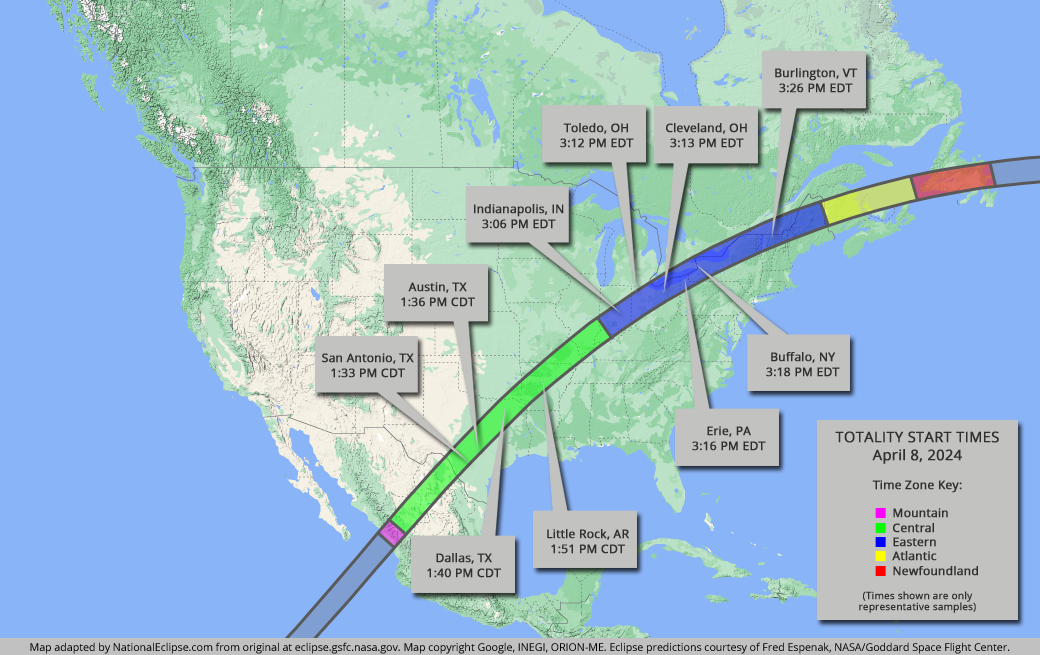On April 8, 2024, around 2:07 p.m., the world around us will become dark. This will mark the first solar eclipse in our area since August of 2017.
In an eclipse, the moon moves between the earth and the sun, blocking sunlight and creating a shadow that passes over the earth in the middle of the day. In order to hit 100% darkness, a location has to align in the path of totality.
While Chicago will only experience 93% darkness, Indianapolis—which is only four hours away—is a major city in the path of totality. Given the relative proximity, New Trier is offering an exclusive two-day field trip for Astronomy students to view this eclipse in totality.
For many New Trier students, this will be a once-in-a-lifetime experience. The exact geographical location affects how dark the view of the sky will be, making eclipses a rare event; many areas in the country will barely be able to tell that they’re experiencing an eclipse.
“The moon is on a slightly different plane, so it’s not going to happen every time. It has to be a perfect line up, which is why the Chicago area will not experience another one until 2099,” Hanna Cohen, New Trier science teacher, said.
Jason English, New Trier’s science department head, said that roughly 60 of this year’s astronomy class students will have the opportunity to take the field trip.
The students will stay overnight on Sunday to see the eclipse Monday at Indianapolis National Speedway.
This field trip is a huge draw for many at New Trier; it combines an educational and social experience, with the chance to spend a night in a different state, with classmates you might otherwise not see at school.
“I’m also really excited because it’s an overnight school field trip,” senior Annie Weiss said. “I really like my classmates in this Astronomy class.”
There is also another group of students led by Nathan Unterman, a member of the New Trier science AAC department, who will be going to Indianapolis from the Northfield campus.
“[Unterman]’s going down a week early to set up this big experiment inside the barn so that when the eclipse goes over it, he and this team of New Trier students is going to look for something, and if they find it or if they don’t find it then it actually might be some new science that New Trier students discovered,” English said.
Scientists often make important discoveries based on eclipses, dating all the way back to Einstein and his theories on starlight. In this barn in Indianapolis, Unterman will look to discover any new scientific theories that the eclipse supports.
Even though there are limited spots in these field trips, students who are staying at New Trier will still get to experience the eclipse locally; administration will supply students with special glasses to watch the eclipse during school hours.
“The students will have an opportunity to go outside and with these glasses see the eclipse, and we will be outside for around 20-30 minutes,” English said.
During this time, there will be significant differences in the environment. Even when not in totality, this eclipse will be a great time to observe animals and insects with all the senses.
“Listen and see what happens. Look and see what happens. You’ll hear different things in the environment when all of a sudden you have no sunlight, or in Winnetka, 7% of sunlight,” Cohen said.
Everyone in the New Trier community will be able to experience this eclipse, even without the chance to head down to Indianapolis.
“For most people who are staying in the Midwest, this is the best eclipse you are ever going to see,” English said.









































